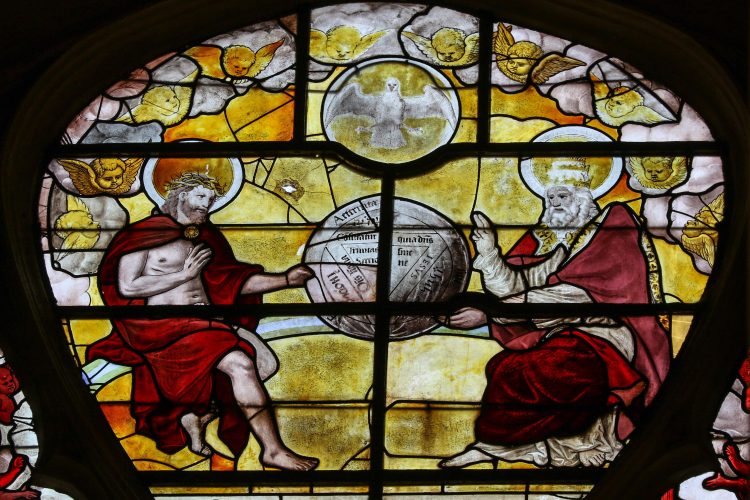Have you ever tried to explain the concept of the Holy Trinity and ended up feeling like you were trying to solve a Rubik’s Cube blindfolded? Fear not, dear reader, for you are not alone in your confusion. In this article, we will dive into the murky waters of understanding the Trinity from the perspectives of various denominations. Get ready to unravel the mystery of the Father, the Son, and the Holy Spirit with a dash of humor and a sprinkle of confusion. Let’s embark on this wild and wacky journey together, shall we
Key Differences in Understanding the Trinity among Various Christian Denominations
When it comes to understanding the Trinity, different Christian denominations have their own unique interpretations and beliefs. Here are some key differences that make each denomination stand out:
Catholic Church:
- Believes in the concept of three distinct persons – Father, Son, and Holy Spirit.
- Views the Trinity as a central mystery of the faith that cannot be fully understood by human intellect.
- Emphasizes the importance of tradition and magisterium in interpreting the Trinity.
Protestant Churches:
- May have a more simplified understanding of the Trinity, focusing on the unity of the three persons.
- Place a strong emphasis on the authority of scripture in shaping their beliefs about the Trinity.
- Often view the Trinity as a crucial doctrine but may not delve as deeply into its theological complexities.
Eastern Orthodox Church:
- Emphasizes the mystical aspect of the Trinity, focusing on the divine energies and essence.
- Believes in the procession of the Holy Spirit from the Father alone, distinct from the Catholic belief in the Filioque clause.
- Values the teachings of the early church fathers in shaping their understanding of the Trinity.
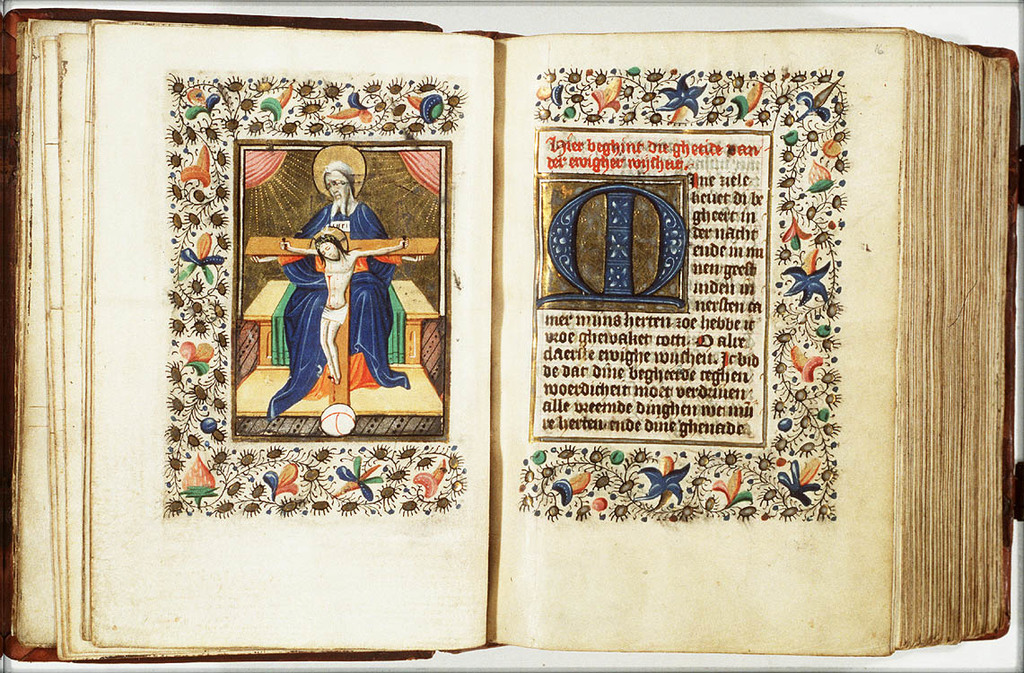
Historical Development of the Doctrine of the Trinity in Christian Theology
During the early years of Christianity, the concept of the Trinity was a hot topic of debate among theologians. Some believed in a triune God, while others saw God as one singular entity. This theological tug-of-war led to some intense scholarly showdowns, with each side trying to out-argue the other. It was like a never-ending game of theological chess, with each move carefully calculated and debated.
As time went on, the doctrine of the Trinity began to take shape more clearly. The Council of Nicaea in 325 AD was a major turning point in solidifying the foundational beliefs of the Trinity. Here, the Nicene Creed was established, affirming the belief in one God in three persons – the Father, the Son, and the Holy Spirit. It was like a lightbulb had finally gone off in the minds of theologians, and suddenly everything made a lot more sense (well, at least to some people).
Throughout the centuries, theologians continued to refine and clarify the doctrine of the Trinity. The Athanasian Creed in the 5th century further solidified the belief in the triune nature of God, leaving little room for debate. It was like the final boss level of Trinity theology had been reached, and no one could defeat the all-powerful three-in-one God (not even the most cunning theological minds of the time).
In modern times, the doctrine of the Trinity is widely accepted among most Christian denominations. It’s like the ultimate theological mic drop – the Trinity reigns supreme, and there’s no more room for debate. So next time you’re feeling lost in the theological weeds, just remember the historical journey of the doctrine of the Trinity and marvel at the wonder of the three-in-one God. It’s a heck of a theological ride, that’s for sure.
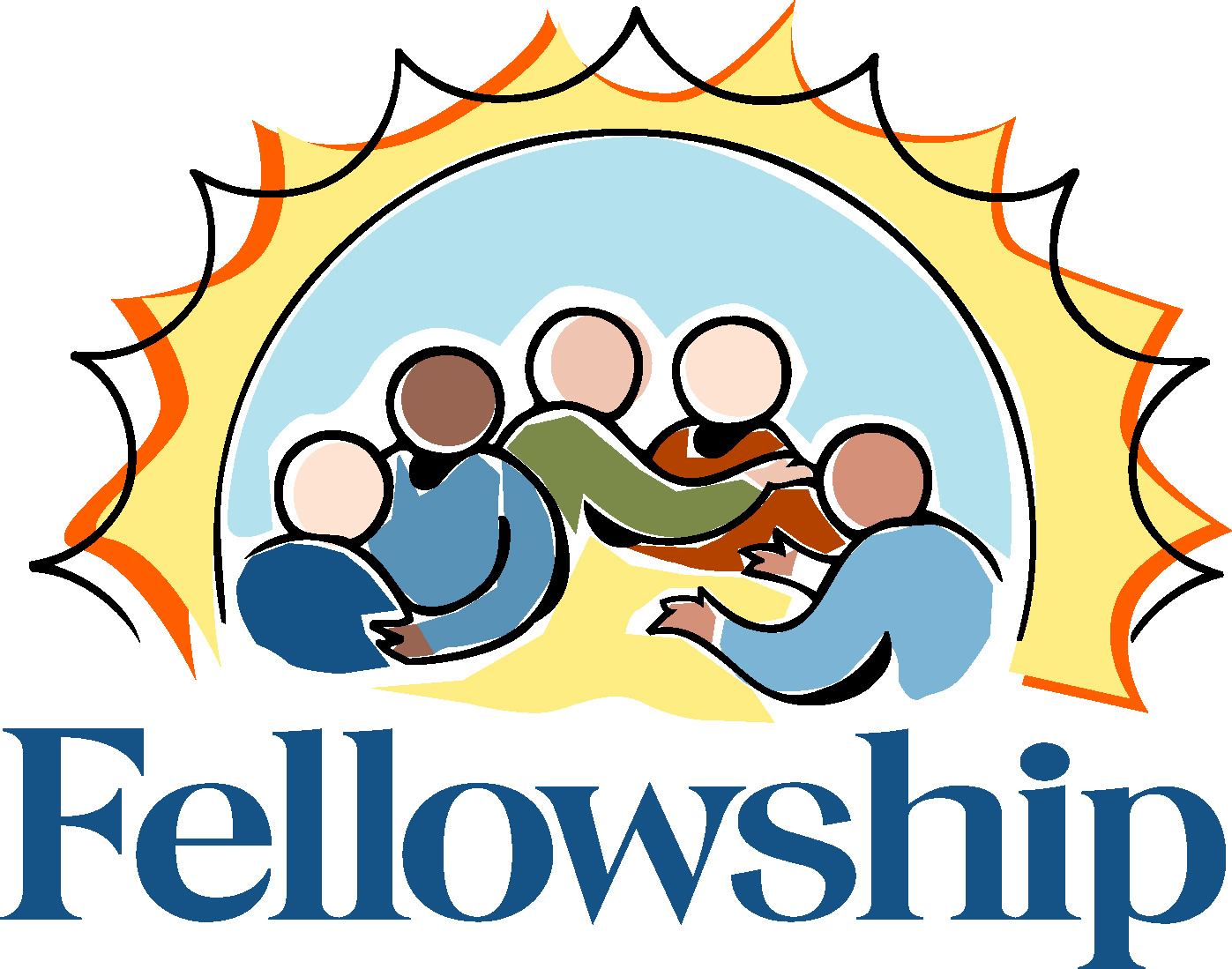
Scriptural Basis for the Doctrine of the Trinity in Different Denominations
Now let’s dive into the juicy details of how different denominations justify their belief in the Trinity using everyone’s favorite book – the Bible! Strap in folks, it’s about to get theological up in here!
First up, we have the Catholic Church. According to them, the doctrine of the Trinity is supported by passages like Matthew 28:19 which mentions baptizing “in the name of the Father, and of the Son, and of the Holy Spirit”. Talk about a holy ménage à trois! They also point to verses like John 1:1-5 which showcases how the Word (Jesus) was with God and was God himself. It’s like a divine family reunion!
Next, we have the Protestants hopping on the Trinity train. They like to highlight passages like 1 John 5:7 which mentions the Father, the Word, and the Holy Spirit bearing witness as three in one. It’s like the ultimate divine testimonial! They also cite passages like Genesis 1:26 where God says, “Let us make man in our image” as evidence of the Trinity’s presence from the beginning of creation. It’s like God was playing divine charades with Himself!
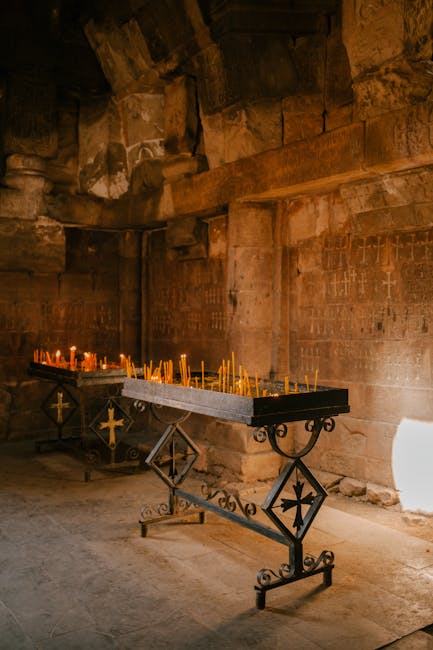
The Role of Tradition and Church Councils in Shaping Views on the Trinity
When it comes to the Trinity, tradition and church councils have played a huge role in shaping how Christians view this divine mystery. Let’s dive into how these two factors have influenced our understanding of the Father, Son, and Holy Spirit.
Tradition has been passed down through generations, often getting embellished along the way like a game of theological telephone. Despite the potential for distortion, many Christians hold fast to these traditional beliefs without question. It’s like a game of theological “Simon says,” where if the church fathers said it, then it must be true!
Church councils, on the other hand, were like the ultimate theological throwdowns. Bishops gathered from far and wide to argue, debate, and vote on key issues like the nature of the Trinity. It was like the theological version of Game of Thrones, but with less bloodshed (hopefully).
But at the end of the day, whether you’re a stickler for tradition or a fan of the council debates, one thing is certain: the Trinity continues to be a central tenet of the Christian faith, no matter how it’s been shaped over the centuries. So let’s raise a toast to tradition and church councils, for keeping us on our theological toes when it comes to the divine three-in-one.
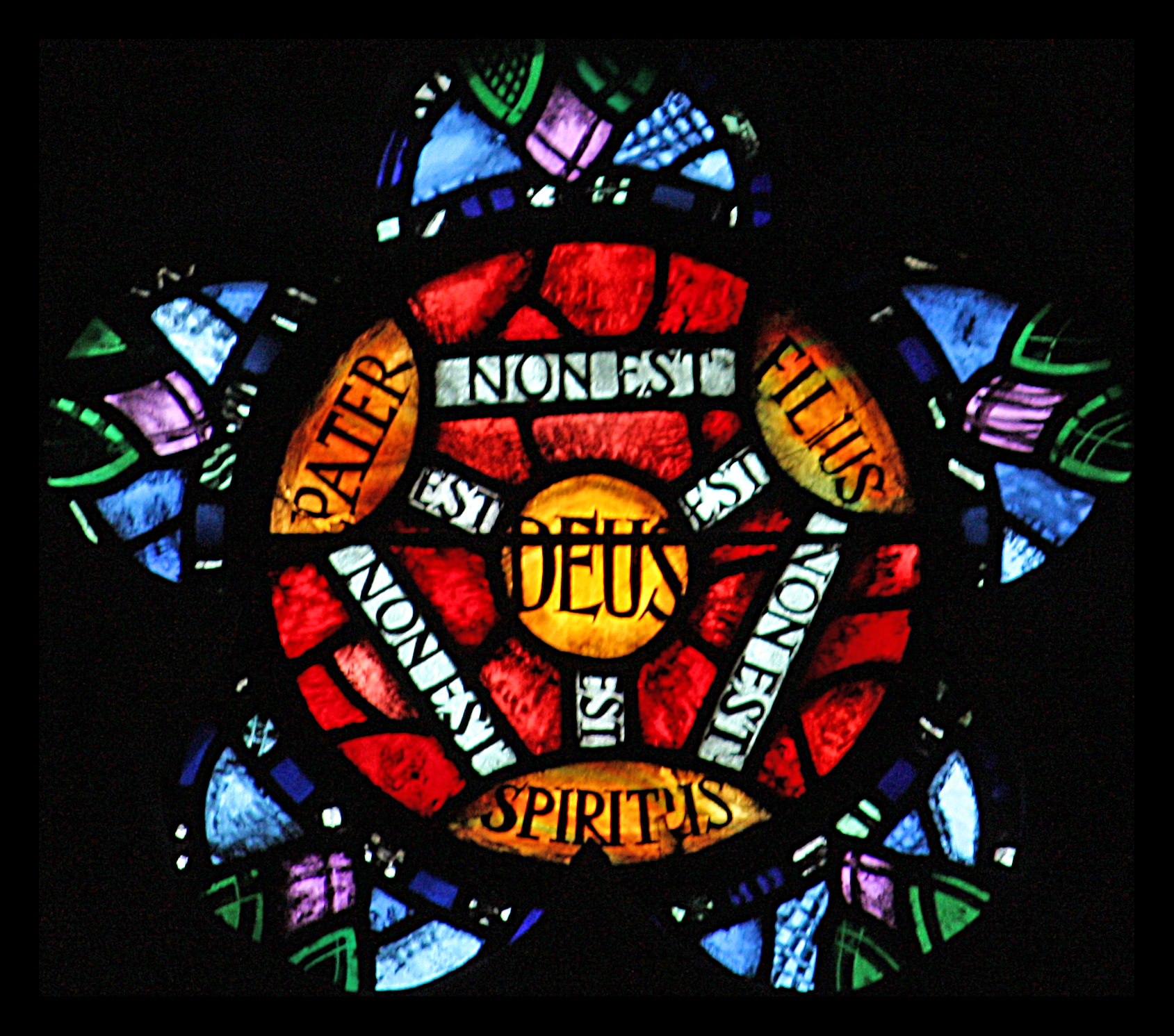
Challenges and Controversies Surrounding the Concept of the Trinity
One of the biggest challenges surrounding the concept of the Trinity is trying to wrap your head around the idea of three distinct persons in one God. It’s like trying to explain why cats always land on their feet, or why toast always lands butter side down – it’s a mystery that may never be fully understood!
Another controversy that arises when discussing the Trinity is the question of which person is the most powerful. Is God the Father the big boss in charge, or is Jesus the one calling the shots? And let’s not forget about the Holy Spirit – is he just along for the ride, or does he have his own superpowers to bring to the table?
Some skeptics argue that the concept of the Trinity is just too convenient – like having three heads on a Sunday morning when the sermon is extra long. But true believers know that the Trinity is a powerful symbol of unity and love, even if it does require a bit of mental gymnastics to fully grasp.
At the end of the day, whether you see the Trinity as a logical paradox or a beautiful mystery, one thing is for sure – it keeps theologians on their toes and provides plenty of fodder for theological debates at cocktail parties!
Practical Implications of Trinitarian Doctrine in Worship and Theology
When it comes to incorporating the Trinitarian doctrine into worship and theology, there are a few key practical implications to consider. First and foremost, **emphasizing the unity and diversity** within the Trinity can help guide our approach to communal worship. Just as the three persons of the Trinity are distinct yet unified, so too should our worship reflect a balance between individual expression and corporate gathering.
Secondly, **acknowledging the roles of Father, Son, and Holy Spirit** in our worship can shape our prayers and songs in meaningful ways. For example, addressing God as Father can remind us of His love and care, while focusing on Jesus as the Son can lead us to meditate on His sacrifice and salvation. Invoking the Holy Spirit can inspire us to seek His guidance and empowerment in our worship.
Furthermore, **contemplating the mystery of the Trinity** can deepen our theological understanding and foster a sense of awe and wonder in our worship. Just as the Trinity defies full comprehension, so too should our worship provoke a sense of humility and reverence towards the divine. By grappling with the complexity of God’s triune nature, we can cultivate a deeper sense of wonder and worship in our hearts.
In conclusion, the Trinitarian doctrine offers a rich tapestry of implications for our worship and theology. By embracing the unity and diversity of the Trinity, acknowledging the distinct roles of Father, Son, and Holy Spirit, and contemplating the mysterious nature of God, we can enrich our worship experiences and deepen our theological reflections in meaningful ways.
FAQs
Why is understanding the concept of the Trinity important?
Well, think of it like this: the Trinity is like the Avengers, but with God, Jesus, and the Holy Spirit. Just like Iron Man, Captain America, and Thor each bring their own unique powers to the superhero team, understanding the Trinity helps us appreciate the unique roles and attributes of each member of the Godhead.
How do different denominations interpret the Trinity?
It’s like trying to order a pizza with different toppings – some denominations prefer just cheese (God), some like pepperoni (Jesus), and others insist on extra mushrooms (the Holy Spirit). Each denomination emphasizes different aspects of the Trinity, but at the end of the day, it’s all about getting that perfect slice of divine communion.
Can the Trinity be explained in simple terms?
Explaining the Trinity is like trying to fit a square peg into a round hole – it just doesn’t quite work. But if you imagine God as the director, Jesus as the lead actor, and the Holy Spirit as the special effects, you start to get a sense of how they all work together to make the greatest blockbuster of all time: Creation.
—
So, What’s the Deal with the Trinity Anyway?
Well folks, there you have it – a whirlwind tour through the wild and wacky world of Trinitarian theology. From the Father, Son, and Holy Spirit to the egg, apple, and pie analogies, it’s clear that Christians have come up with some pretty imaginative ways to wrap their heads around this mysterious concept.
Whether you’re a devout believer, a skeptical agnostic, or just someone who stumbled onto this article by accident, we hope you’ve gained some insights into the diverse perspectives on the Trinity held by different denominations. And who knows, maybe you’ve even found a perspective that resonates with you.
As you go forth into the world, remember this: when it comes to understanding the Trinity, sometimes it’s okay to just embrace the mystery and enjoy the ride. After all, who doesn’t love a good spiritual brain teaser?
Until next time, keep pondering those deep theological questions and remember – the Trinity’s got your back, no matter how confusing it may seem. Peace out, fellow seekers of the divine.

